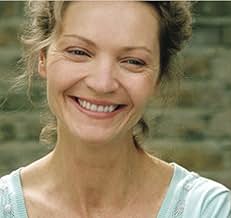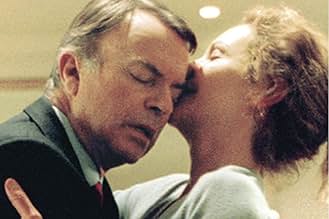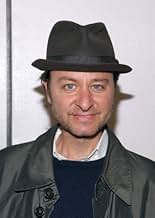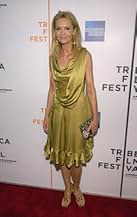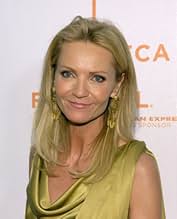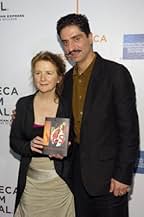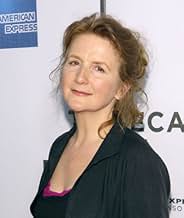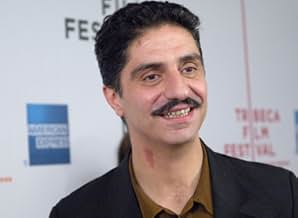Aggiungi una trama nella tua linguaIn this film, told almost entirely in iambic pentameter, She is a scientist in a loveless marriage to Anthony, a devious politician. He is a Lebanese doctor in self-imposed exile, working as... Leggi tuttoIn this film, told almost entirely in iambic pentameter, She is a scientist in a loveless marriage to Anthony, a devious politician. He is a Lebanese doctor in self-imposed exile, working as a chef in a London restaurant. They meet at a banquet and fall into a carefree, passionat... Leggi tuttoIn this film, told almost entirely in iambic pentameter, She is a scientist in a loveless marriage to Anthony, a devious politician. He is a Lebanese doctor in self-imposed exile, working as a chef in a London restaurant. They meet at a banquet and fall into a carefree, passionate relationship. But the contempt He perceives as a Muslim immigrant to the UK causes him t... Leggi tutto
- Premi
- 2 vittorie e 3 candidature totali
- Kitchen Boss
- (as George Yiasoumi)
- Priest
- (as Father Charles Owen)
Recensioni in evidenza
It sounds so simple, and in a sense it is. The film is luminous, elegant, ravishingly beautiful, subtly erotic. The love scenes feel so natural. And yet -- all the dialogue is spoken in rhymed iambic pentameter. Scenes are shot from canted angles, through glass or water, sometimes from CCTV cameras. Jump-cuts, motion blur, internal monologue, an unsettling score - all these elements challenge the simplicity of the idea of love. He and She are unnamed, but they have backgrounds, political and religious beliefs that take the narrative so far beyond the usual romantic pap of Hollywood cinema. Every frame and every gesture invites multiple viewings and multiple readings, partly for the precision and lush beauty (each city has its own colour scheme), and because so many other films and paintings are evoked (including an audacious nod to Orlando early on!) And because this is a Sally Potter film, the passion and the politics have a strain of humour. Or in this case, a frame, provided by Shirley Henderson as She's cleaning woman. Her opening and closing monologues in the whiteness of She's London house are immediately engaged, and totally unlike anything else you'll see or hear in film (at least English-language film). In fact, that's a good summary: Yes is totally unlike anything you've seen before.
Sally Potter does a wonderful job of turning what could be a cliché story about a white woman falling in love with a man from the middle east into a socially, sexually, and emotionally conscious film.
The style itself is truly Potter with breathtaking cinematography that plays color and costume together in a well choreographed filmic space.
The use of verse throughout the film only adds to the plot and the characters' intensity.
All I can say is go see it, you will not be sorry. 10/10
Not that this is such a bad film it's different from the normal run of romantic comedies. At times it becomes quite didactic as "He" asserts the Muslim philosophical position and "She" replies for the secular West. The dying Ulster communist Aunt's story is also an unusual ingredient. Even the more conventional elements the alienated husband (Sam Neil), the empty affluence, the troubled teenager (Stephanie Leonidas), are deftly handled. I say "romantic comedy" because the film ends like one, but it could have equally ended as tragedy. "He" and "She" are both missing something, and find it in each other, only to discover that love does not always conquer all. One could blow one's brains out. But then one can always high-tail it to Cuba instead.
This is a very artful piece of film-making with some very clever camera-work and adroit use of music, but we still have a very ordinary story. Joan Allen as "she" does manage to transcend the material and make us care about her character, which is quite an achievement as the character is a beautiful middle-class Irish-American ice princess scientist stuck in a dead marriage whose only real passion is in what's at the other end of her microscope. It's interesting how she manages to appear so radiant, 10 years younger in fact, after her first roll in the hay with "He".
"He", the French-Armenian actor Simon Abkarian, comes across to start with as a bit of a cliché, the handsome charming feckless foreigner. He is not helped by the aforesaid iambic pentameter, which was not designed for foreigners speaking English. He has to utter one of the most insincere-sounding pick-up lines I have ever heard: "If I was your husband I would be so jealous of your beauty I would not leave your side". As we see more of him, a serious side emerges, an educated Muslim who sees a lot wrong with the West and not much with his own society, despite its inability to live in peace. This he blames on the West. However, the dialectic is sidelined by the plot line, which as suggested above, winds up on a Cuban beach.
The novel "Orlando" by Virginia Woolf was a pretty weird property, and Sally Potter produced a weird and wonderful movie from it. Her "Tango Lesson" was semi-autobiographical, well produced and absorbing. This movie is ambitious "let's see if we can make a romantic comedy about the clash of civilizations and the meaning of life" and although visually fascinating it not surprisingly doesn't quite make it. It has its moments though Maid Shirley Henderson's disquisitions on the nature of dirt to the camera, Sam Neil's guitar miming to an Eric Clapton number and the restaurant orgasm to name a few. Sally Potter still has the ability to find a different angle on existence.
Instead, we have a film with metaphors, themes and relationships. There are few movies I have seen recently that attack such large and serious topics.
The major themes in this movie are God, love and politics. During the course of the movie, racism and war, terrorism and the Middle East, infidelity, atheism and Marxism are all brought on stage.
As if that weren't enough, the majority of the dialog is in rhymed verse, with perhaps occasional interjections of free verse. In fact, the entire very contemporary script has a vaguely Shakespearean feel to it, though there is no shortage of four letter words.
The entire cast of the movie is wonderful, but the centerpiece of the entire film is Joan Allen, who gives an almost supernaturally wonderful performance. The heart of the movie is a moving love story, but this is a serious romance with strong, deeply emotional scenes designed to reflect adult, rather than teenage, themes.
There are also major metaphors in the movie, such as the role of cleaning, which usually stands for an attempt to wipe out guilt or corruption, and the use of glass, and particularly glasses of water, to show the way different viewpoints distort a particular perception of reality.
If you are prepared to see a very serious, beautiful made, and extremely arty film, then this is an excellent way to spend your time. I simply loved the movie, and would probably enjoy seeing it again sometime soon. But please, don't bother to go if you are looking for something else. This is a very heartfelt and intense movie, which refuses to compromise.
Why use iambic pentameter in a contemporary film? Actually, if it weren't for the rhyming, most of us would not identify the meter beyond just beautiful cadence by professional actors. But because this is an intricate tale of a mature woman in a lifeless marriage finding a man who gives her a reason to be happy, the meter adds grace and elegance to what neo-cons could label as "sin." The arguments about the beauty of life and the human body, along with a maid discoursing on dirt, are made to sound like philosophical discourse by Plato at his nearest park.
When Allen's "She" discovers through her aunt that we want our whole lives "things we don't need," the film takes another direction from love to a communistic conclusion about wealth, in Cuba no less. That's what's exciting about Potter's agenda: She seems to have so many thoughts about birth, love, and death that the film bursts with the energy of a first date with an interesting, very verbal, very sensual human being. When "She" has her date in a restaurant, "He," her new love, stimulates her under the table in an almost elegant takeoff on the "Harry Meets Sally" scream.
That "She' was born in Belfast and "He" in Beirut is Potter's way of universalizing the clashes our culture seems to proliferate these days. The director could be faulted for trying too much, for being too heavy handed in her metaphors, but better that overreaching than no reaching at all.
What Potter's aim is with the maid who comments to the audience about the universe of microbes beneath a seemingly clean sheet is a challenge, as are the multiple times service people such as cooks and waiters address us. I suspect Potter is emphasizing the need to pay attention to the little things of life, including marginal workers. Indeed, at one point the need to live each moment fully stands front and center. I can agree with that.
The eternal "Yea" overcomes the "Nea."
Lo sapevi?
- QuizThe whole of the film's dialog is spoken in verse.
- BlooperAs "He" is chopping celery and talking to his crew, the knife in his hands changes from shot to shot. One shot has pieces of celery stuck to the knife while the other shows a clean blade.
- ConnessioniFeatured in Siskel & Ebert & the Movies: The Best Films of 2005 (2005)
- Colonne sonoreTEN LONG YEARS
Composed by B.B. King (as Ridley B. King)/Jules Bihari
Performed by B.B. King and Eric Clapton
I più visti
- How long is Yes?Powered by Alexa
Dettagli
Botteghino
- Budget
- 1.000.000 £ (previsto)
- Lordo Stati Uniti e Canada
- 396.760 USD
- Fine settimana di apertura Stati Uniti e Canada
- 28.451 USD
- 26 giu 2005
- Lordo in tutto il mondo
- 661.946 USD
- Tempo di esecuzione1 ora 40 minuti
- Colore
- Mix di suoni
- Proporzioni
- 1.85 : 1
Contribuisci a questa pagina



